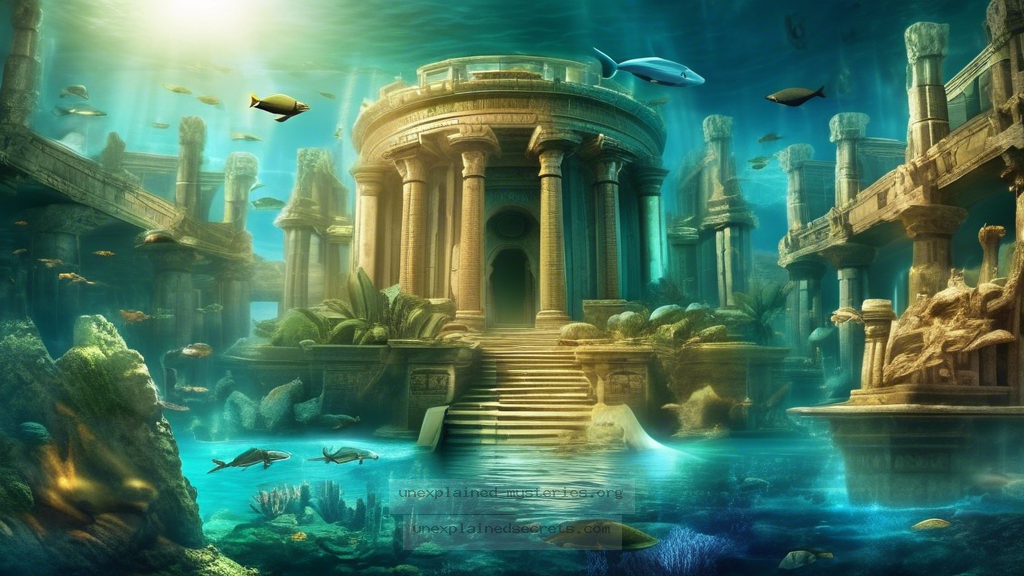What Happened to the Lost City of Atlantis, and Why Does It Captivate Us Still?
What Happened to the Lost City of Atlantis, and Why Does It Captivate Us Still?
The tale of Atlantis has captivated the human imagination for centuries, sparking debates, theories, and countless expeditions in search of this fabled lost city. But what is it about Atlantis that continues to intrigue historians, archaeologists, and adventurers alike? In this post, we will explore the origins of the Atlantis legend, the evidence supporting its existence, and the theories surrounding its disappearance. We will also examine the impact of Atlantis on modern culture and the ongoing search for its remnants.
Historical Context of Atlantis
The story of Atlantis originates from the works of the ancient Greek philosopher Plato, who described it in two dialogues, “Timaeus” and “Critias,” around 360 B.C. According to Plato, Atlantis was a powerful and advanced civilization located beyond the “Pillars of Hercules,” what we now know as the Strait of Gibraltar. In his accounts, he painted a picture of a utopian society with impressive architecture, sophisticated technology, and a strong military presence. However, Plato claimed that due to its moral and ethical decline, Atlantis ultimately sank into the ocean in a cataclysmic event.
Plato’s writings were not merely a historical account; they served as a philosophical allegory warning against hubris and moral decay. The story of Atlantis was intended to illustrate the consequences of a society that strays from virtue and justice. Over the centuries, scholars and explorers have debated whether Plato’s account was based on real events or purely a figment of his imagination.
Core Concepts and Theories Surrounding Atlantis
Many theories have emerged regarding the location and fate of Atlantis, leading to various hypotheses that continue to fuel interest in the subject. Below are some of the most prominent theories:
- Location Theories: Various locations have been proposed for Atlantis, including the Mediterranean Sea, the Caribbean, Antarctica, and even the North Sea. Each theory is backed by its own set of archaeological and geological evidence, though none have been universally accepted.
- Catastrophic Events: Some researchers believe that a natural disaster, such as a volcanic eruption or tsunami, could explain the disappearance of Atlantis. The eruption of Santorini around 1600 B.C. is often cited as a possible event that could have inspired Plato’s tale.
- Underwater Discoveries: Some underwater archaeological sites, such as the structures off the coast of Yonaguni, Japan, and the submerged ruins near Bimini in the Bahamas, have sparked debates about their connection to Atlantis.
Practical Implications and Evidence
While the existence of Atlantis remains unproven, the search for evidence continues to yield intriguing results. For instance, the underwater ruins off the coast of Bimini have been a focal point for some researchers. Discovered in the 1960s, these structures are made of limestone blocks and resemble roads. However, the scientific community remains divided on whether these formations are man-made or natural.
In addition, the discovery of ancient civilizations that experienced sudden collapses, such as the Minoan civilization on Crete and the Mycenaean civilization in mainland Greece, has led some to draw parallels to the story of Atlantis. These civilizations faced natural disasters and societal collapse, which could mirror the fate of Plato’s lost city.
Alternative Perspectives on Atlantis
While many view the story of Atlantis as a historical mystery to be solved, others see it as a philosophical construct. Some scholars argue that Plato’s Atlantis was never intended to be a real place but rather a narrative device to explore themes of society, morality, and governance. This perspective shifts the focus from a literal search for Atlantis to a deeper exploration of the values and lessons embedded in the story.
Additionally, some modern interpretations suggest that Atlantis could symbolize the collective human desire for an ideal society, making it a timeless allegory for our own societal challenges. This viewpoint allows for a more nuanced understanding of why the story continues to resonate through the ages.
Common Misconceptions and Clarifications
As with many ancient mysteries, the legend of Atlantis is rife with misconceptions. Here are a few common myths and clarifications:
- Myth: Atlantis was a technologically advanced society that could not be replicated.
Clarification: While Plato described advanced technology, many ancient civilizations demonstrated remarkable ingenuity, suggesting that technological progress was not unique to Atlantis. - Myth: Atlantis was a single, homogenous civilization.
Clarification: If Atlantis existed, it likely comprised various cultures and peoples, akin to other ancient societies. - Myth: The search for Atlantis is purely speculative and lacking in serious inquiry.
Clarification: Many archaeologists and historians engage in rigorous research, examining geological and archaeological evidence to explore the possibilities.
Best Practices for Investigating Ancient Mysteries
For those interested in exploring ancient mysteries such as Atlantis, there are several best practices to consider:
- Research Thoroughly: Begin with a solid foundation of historical texts, archaeological findings, and scholarly articles to understand the context and theories surrounding the mystery.
- Stay Open-Minded: Be willing to consider multiple perspectives and theories. Ancient history is complex, and new discoveries can change our understanding.
- Engage with Experts: Attend lectures, join forums, and participate in discussions with archaeologists, historians, and other enthusiasts to gain insights and share knowledge.
Future Developments and Ongoing Research
The quest to understand Atlantis continues with ongoing research utilizing advanced technologies such as ground-penetrating radar, underwater drones, and satellite imagery. These tools enable archaeologists to explore previously inaccessible areas and gather data that could shed light on ancient civilizations.
Recent explorations in the Mediterranean and Caribbean have sparked renewed interest, with teams of scientists and researchers seeking to uncover evidence of lost civilizations that could be linked to the Atlantis myth. Additionally, interdisciplinary studies involving geology, archaeology, and anthropology are providing new insights into how ancient societies functioned and interacted with their environments.
Conclusion: The Enduring Allure of Atlantis
The mystery of Atlantis remains one of the most compelling ancient enigmas, blending history, philosophy, and the human desire for knowledge. From Plato’s cautionary tale to modern-day explorations, the story of Atlantis continues to inspire curiosity and debate. Whether viewed as a historical reality or a timeless allegory, the legend serves as a reminder of the complexities of human civilization and the lessons learned from our past.
As we continue to explore the depths of history and the mysteries that lie beneath the surface, the quest for Atlantis not only enriches our understanding of ancient cultures but also challenges us to reflect on our societal values and aspirations. The search may not yet have yielded definitive answers, but the journey itself is a testament to our enduring fascination with the unknown.
Other Articles
Recent Posts
- What Happened to Flight MH370? The Conspiracy Theories That Still Haunt Us
- What Secrets Lurk Within the Walls of the Infamous Trans-Allegheny Lunatic Asylum?
- What Evidence Supports the Existence of Bigfoot in the Pacific Northwest?
- What Happened to the Indus Valley Civilization? Unraveling the Mysteries of Ancient Urban Life
- Can Telepathy Be Scientifically Proven Through Laboratory Evidence?







